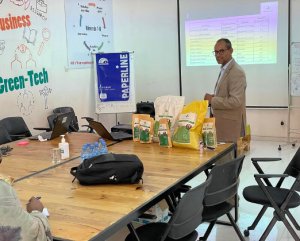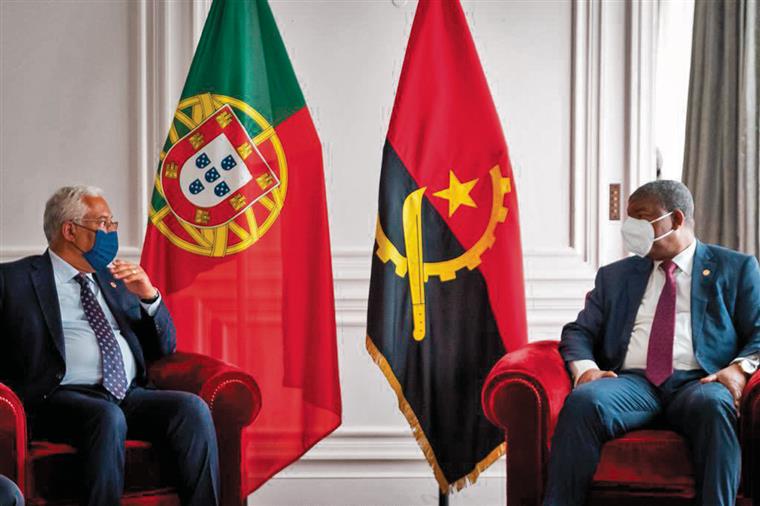In Mauritania, a country dominated by the Saharan Desert and defined by tradition – players from across society are coming together to encourage innovation and set a new path for the country’s development.
From the public sector to local and international businesses, as well as donor communities, entrepreneurship is beginning to emerge as a crucial element in any, strategy to address Mauritania’s greatest challenges, socio-economic inclusion, poverty reduction, youth employment, economic diversification, and climate change.
 The informal self-employment and micro–businesses in agriculture, livestock, and commerce currently make up the vast majority of jobs among the poorest households in Mauritania. Smaller independent firms continue to encounter obstacles, discouraging the emergence of local suppliers and directly impacting international investors who face higher operating costs.
The informal self-employment and micro–businesses in agriculture, livestock, and commerce currently make up the vast majority of jobs among the poorest households in Mauritania. Smaller independent firms continue to encounter obstacles, discouraging the emergence of local suppliers and directly impacting international investors who face higher operating costs.
Both the Mauritanian government and donor community see youth employment as a priority for the country. And by all accounts, Mauritania’s youth do not lack entrepreneurial instincts. The traditionally trade-driven economy has led young entrepreneurs to seek opportunities to build more modern “value added” businesses. This goes for both professionally educated youth as well as those with vocational training.
It is for this reason that Kosmos Energy’s Innovation Center (KIC) in Ghana has decided to expand its support of tech-driven entrepreneurship to Mauritania. KIC works with young tech entrepreneurs in the agricultural sector and have garnered awards and plenty of media attention. Kosmos has had good experiences doing business there and is now taking a rigorous approach to social investments into entrepreneurship there.
 In 2018 Kosmos energy in partnership with DAI, an international development company that helps the KIC to design and implement programs that advance locally-led market-driven solutions to some of the country’s key challenges, introduced a project called ‘Sustainable Business’, this program is helping young, entrepreneurial Mauritanians develop their business skills and potential, encouraging and challenging them to turn ideas for new products and services into reality.
In 2018 Kosmos energy in partnership with DAI, an international development company that helps the KIC to design and implement programs that advance locally-led market-driven solutions to some of the country’s key challenges, introduced a project called ‘Sustainable Business’, this program is helping young, entrepreneurial Mauritanians develop their business skills and potential, encouraging and challenging them to turn ideas for new products and services into reality.
Equipping young people with the right training and support to become entrepreneurs creates an alternative pathway to employment and economic empowerment for young Mauritanians. Cultivating a new culture of innovation could play a pivotal role in the founding of new businesses and the diversification of the country’s economy.
Thus the Mauritania Innovation Challenge (MIC) was initiated. This program is comprised of two elements: the MIC Classic for budding entrepreneurs and the MIC Lite for existing startup businesses. The annual program provides for the opportunity for young people to develop skills they need to become business owners through a series of classroom modules and competitive pitch competitions.
For four months, participants in MIC are guided through the early and fragile stages of business growth, learning everything about defining a business problem, creating a value proposition and how to understand and identify target audience.
At the end of the program, participants pitch to a panel of judges and stakeholders in Nouakchott. Here, they present their new business ideas and proposal. The most promising ideas receive further technical assistance to continue their growth journey.
More than 30 young entrepreneurs are selected to participate each year in the Mauritania Innovation Challenge. The business development program provides early-stage startups with the opportunity to develop the confidence and skills they need to succeed. Aimed at young entrepreneurs and small business leaders, the challenge takes participants on a journey to develop a market-ready product or services, with a final competition for seed funding. KIC’s Mauritanian startups built a wide range of solutions across various sectors, from waste recycling to healthcare.
The MIC Lite is on a smaller scale, more sector focused program which looks to award and grow innovation within the Mauritanian ecosystem. This program was developed in response to the global pandemic deepening long standing challenges in Mauritania.
 The future of Mauritanian agriculture calls for new business models, digital innovations, and alternative sources of energy and climate smart solutions.
The future of Mauritanian agriculture calls for new business models, digital innovations, and alternative sources of energy and climate smart solutions.
Participants in the new program will be young entrepreneurs leading existing early stage startups that are testing new, innovative solutions with a particular focus on agriculture, food innovation, circular economy and alternative energy.
Some Winners of the MIC
Smart Trash: a waste management software, with the aim of collecting and locating waste and garbage around the capital city of Nouakchott. It also won $ 20,000 of seed funding from Kosmos Energy Mauritania.
Addanam: provides home delivery and pick up services for local food vendors. Think Uber Eats for Nouakchott. It received $ 11,000 from BMCI, a local private bank.
Smart Remit: a secure online payment services that allows users to make money transfers in Mauritania and send money abroad. It considers itself to be a Mauritanian PayPal alternative. It received $15,000 in seed funding from Kosmos.
Yata Medical: a telemedicine platform that enables doctors, pharmacists and specialist from the capital to work directly with counterparts in rural areas of Mauritania to conduct medical consultation. It received $ 5,000 from Kosmos.
Hadanat: a language education platform that enables children to improve their skills. The platform focuses specifically on Mauritanian children born or raised abroad, but who do not speak their mother tongue (Poular, Wolof, Soninke or Hassanya) fluently. It received $5,000 from Kosmos.
Young people make up a significant portion of Mauritania’s population. They are key drivers of future economic growth and positive social change.


